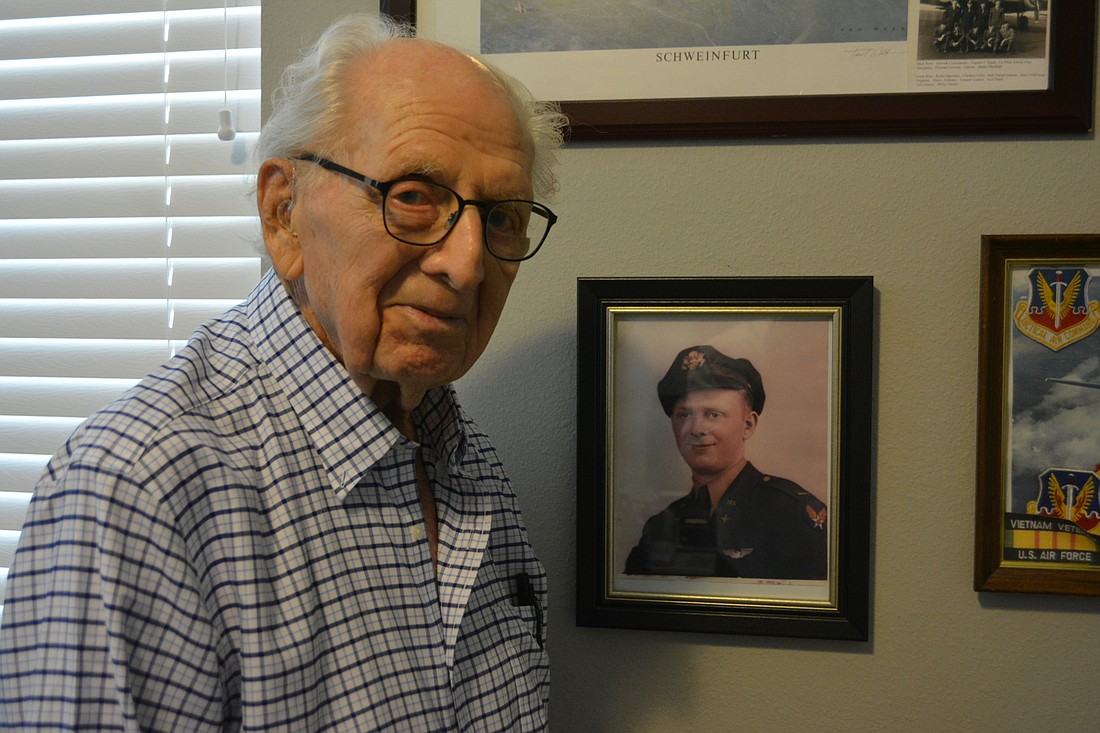- December 13, 2025
-
-
Loading

Loading

I was hoping to get retired Air Force Lt. Col. Eugene Vaadi to ride in the 2020 Tribute to Heroes parade in Lakewood Ranch.
But with the onset of the COVID-19 pandemic, the parade was cancelled.
Then came 2021, and the pandemic persisted, and again, no parade.
Now that opportunity has passed.
East County's Vaadi, a true war hero, died Aug. 28 at the age of 100.
In July of 2019, I was fortunate enough to visit with Vaadi, who talked about some of his amazing war experiences. Not only did Vaadi fly missions in three wars, he was shot down and imprisoned in two ... World War II and Korea. He also flew missions in Vietnam.
It was during the Korean War when Vaadi was shot down in his B-29 along the Chinese border and was held captive, along with his surviving 10 crew members, for 2 1/2 years before finally being released in August of 1955. It took the United Nations to eventually convince the Chinese to release the crew.
The international incident became complicated because the Chinese government accused Vaadi and his crew of espionage. The U.S. explanation of that particular flight's mission was to drop psychological leaflets in North Korea, a standard war practice at the time. United Nations archives contain all the accusations and explanations. It is fascinating. true life drama.
With the passing of Vaadi, we have lost another precious resource that connects us to our past. Sometimes we don't realize we should be tapping into those resources until it is too late.
I once visited the Pima Air and Space Museum in Tucson, Arizona, and I was fortunate to find a retired soldier who had served as a tail gunner in World War II. He sat alongside a film exhibit and explained to me in detail what was occurring on the screen. His narration made all the difference and, indeed, made me understand just a little better what it was like.
It's something to keep in mind as few former World War II soldiers, such as Vaadi, remain. That also should hold meaning as we approach Sept. 11 and realize it's been 20 years since the 9/11 attacks. We need to listen to the policemen and firemen who served at the sites. If we document that information, younger generations can stay in touch with the past.
Although Vaadi did document many of his experiences in his self-published book ""Wings and War," it is surprising to me his story hasn't been turned into a movie.
According to the American Air Museum in Britain, his B-17 — The Leading Lady — was shot down near Ruhland, Germany on March 2, 1945 during his 19th mission over Germany. The aircraft was flying about 28,000 feet when it was shot up and began to burn. At 16,000 feet, the aircraft started to go out of control, rolled and exploded. The force blew Vaadi out of the plane, but his chute opened and he made it to the ground, where he was immediately captured.
About a month after his capture, he was marched 75 miles to Stalag VII in Moosburg, Germany but was fortunate the war soon ended.
That would have been just the warm up to the movie.
The imprisonment in China would take much time. Vaadi and his fellow crew members were tortured much of the time they spent in the Chinese prison, often on a daily basis. Vaadi never received any treatment for the shrapnel injuries he suffered in his plane being shot down. He was beaten with sticks and deprived of sleep.
Is it painful to hear such stories? Of course. Is it important? I think so.
Also painful to me was the fact Vaadi was never awarded a Purple Heart. That didn't bother him, and he never mentioned it, but it did bother me. How could someone who had sacrificed so much not have been recognized?
I went to retired Army Col. Gill Ruderman of Braden River VFW Post 12055 to see if he could help. He prepared the necessary information and took it all the way to the U.S. Army Human Resources Command in Fort Knox, Kentucky, which eventually decides whether the Purple Heart will be rewarded.
The pandemic slowed the process, but eventually Ruderman was told that Vaadi's injuries weren't documented.
If you don't believe a man who served in three wars about the injuries and torture he sustained, how about a fellow crew member?
In a 2010 article by Matthew Waller of the San Angelo, Texas Standard-Times, Vaadi was interviewed along with his co-pilot Wallace Brown.
Brown said in the article they went through interrogations, some lasting a week at a time, and they were required to stand the entire time. Brown said the interrogators would thump their eyes if they shut them with the purpose of keeping them awake. “Your body was swollen up until you can’t feed yourself. The torture was the standing, and the kicking and the beating and the thumping, to keep you awake,” Brown said in the article.
Although Vaadi has died, I would hope the U.S. Army Human Resources Command will reverse its position.
Born July 1, 1921, in Watertown, New York, Vaadi is survived by his wife, Marguerite Morrison Vaadi, his three children, Jean Anne (Bernard), Donna (Ernest) and Michael (Karen), his sister, Margaret, six grandchildren and five great grandchildren
His family notes he was active in many groups (Masons, Elks, American Legion, among others) and he enjoyed the occasional glass of Johnny Walker.
A memorial mass and celebration will be held at a future date to be determined. In lieu of flowers, people are asked to donate to the Shriners Hospitals for Children in Tampa or a favorite charity. He will be buried at Sarasota National Cemetery.